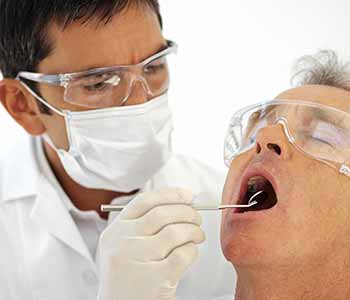Avoid extensive treatments with effective oral care in San Francisco

Maintaining optimal oral health requires more than just daily brushing. Certain steps should be followed and techniques used to keep a mouth and smile healthy for a lifetime.
Patients should understand their individual oral care needs
Patients should tell the doctor about any existing medical conditions, and the medications and supplements they are currently taking. Factors such as heart disease, pregnancy, diabetes, cancer, and the treatments for these conditions can necessitate specific changes in oral care. Existing patients should discuss any changes in their health or medications since their last dental visit.
Develop a daily oral care plan and follow it carefully
Dr. Arellano and his team can help patients design an easy to follow daily oral care routine based on their medical history and unique needs. For example, diabetes or pregnancy can increase the risk for periodontal disease. Specific preventive treatments, antibacterial mouthwash, or more frequent dental checkups may be recommended.
Use the right toothbrush and techniques
The teeth should be brushed at least twice each day, but brushing after every meal and after snacks is a healthier, more proactive approach. The toothbrush should have a head that fits the mouth comfortably and is small enough to reach the very back areas of the mouth. The bristles should be soft to prevent abrading the gingival (gum) tissue and tooth enamel.
The brush should be held at an angle with the bristles pointing at the gumline. The chewing surface, outside, and inside of each tooth should be brushed gently. It is recommended to work from one side to the other of the upper arch and then repeat for the lower arch to ensure every tooth is cleaned. An electric toothbrush may make brushing easier for those with dexterity problems such as arthritis. The tongue should also be brushed or cleaned with a tongue scraper.
Floss every day – don’t skip this crucial step
It is not possible to clean between the teeth with a toothbrush. If the teeth are not flossed, the area that traps the most food debris and plaque are missed, so periodontal disease and cavities can develop quickly. The doctor or hygienist can demonstrate proper flossing techniques and recommend flossing aids to make the task easier.
Maintain regular dental visits
Even with the best oral hygiene routines, plaque and tartar can build up in hard to reach areas of the mouth. Professional cleaning can address these areas before they cause issues. Regular dental exams can catch any problems while they are small so they can be easily treated. If problems such as swollen gums, loose teeth, sensitivity, or changes in bite develop, a dental appointment should be scheduled promptly.
Dr. Arellano and his team work with patients to help them learn to be advocates for their own optimal oral health. Call 415-881-4343, or stop by our office, located at 3030 Geary Blvd. San Francisco, CA 94118, and schedule an appointment today.








